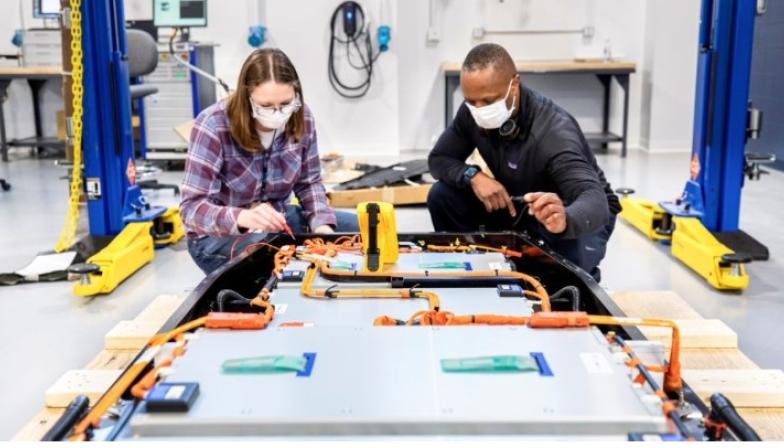Ford Motor Co. will take a direct stake in a battery nickel plant under construction in Indonesia, strengthening its role in the supply chain as automakers try to secure materials for electric vehicles.
The American automaker is joining PT Vale Indonesia and China's Zhejiang Huayou Cobalt Co., according to a joint statement from the companies. as investors in a project to produce 120,000 tons of nickel chemicals per year for electric vehicle batteries. The Pomalaa plant is expected to begin commercial production in 2026, with a total investment of Rp 67.5 trillion ($4.5 billion).
The statement did not disclose each company's share of investment.
Global automakers are looking to secure long-term flows of materials such as lithium, cobalt and nickel in the form of demand pellets. Although direct investment in mines and refineries remains rare, General Motors Co. invested in a lithium mining company in the United States, and Tesla Inc. interested in purchasing a lithium producer.
Indonesia is emerging as a major source of battery-ready nickel following a wave of investment in refineries in the mineral-rich country, largely by Chinese companies. Ford, which plans to produce 2 million electric vehicles a year by the end of 2026, has already entered into an agreement with Huayou to use battery materials sourced from the Pomalaa plant.
“This system gives Ford direct control over obtaining the nickel we need—one of the lowest-cost methods in the industry—and allows us to ensure that nickel production meets our company's sustainability goals,” Lisa Drake, vice president, Ford Model Electric Vehicle Industrialization , the statement says.
Pomalaa is a long-delayed project and an example of earlier attempts to use high-pressure acid leaching (HPAL) technology to produce nickel chemicals from low-grade ores. A number of HPAL plants are currently being developed in the Southeast Asian country, but there are still concerns about their environmental performance.
“The technology remains difficult to develop, scale up and control compared to other traditional nickel production methods and processes,” said analyst Allan Ray Restauro.



